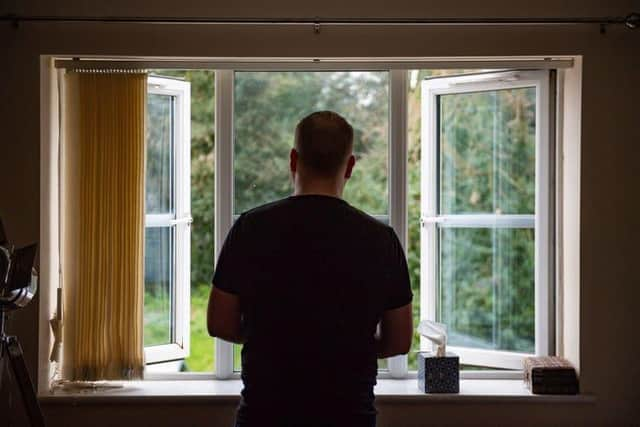End of Covid protections could impact tens of thousands of vulnerable Doncaster residents
and live on Freeview channel 276
A group representing vulnerable families said a lack of guidance from the Government is concerning for the millions of people in England formerly advised to shield to avoid the risk of Covid infection.
NHS Digital figures show 8,415 patients in Doncaster were classed as clinically extremely vulnerable in April 2020 – shortly after they were first added to the shielding list.
Advertisement
Hide AdAdvertisement
Hide AdBy the time the shielding programme came to an end on September 30 last year this had risen to 22,575 in the area, following an expansion of the list in February 2021 to include 1.7 million more people thought to be at risk nationally.


Of those previously identified as most at risk in Doncaster, 20 per cent were aged between 70-79 – the largest proportion of all age groups.
They were among 3.7 million people across England classed as "clinically extremely vulnerable" at the time, though the Government said the term is no longer used.
And as of yesterday (Thursday February 24), all coronavirus laws in England – including the legal requirement for people who test positive to isolate – came to an end as part of the Government's strategy of "living with Covid".
Advertisement
Hide AdAdvertisement
Hide AdThe Clinically Vulnerable Families support group said the move has left people who were once on the list in a "state of shock and anxiety".
Lara Wong, founder of the organisation, said: "The lack of government guidance puts vulnerable people in a difficult position.
"The removal of protections means that the risk of catching Covid will increase."
She said these protections had allowed vulnerable people a "small taste of freedom", but without clear guidance they must now make "impossible choices" between lives and livelihoods.
Advertisement
Hide AdAdvertisement
Hide AdMs Wong said non-vulnerable members of the population should continue to wear masks and isolate when needed.
The most common reason people in Doncaster were classed as vulnerable was because they were identified by an Oxford University tool, which assesses multiple factors to determine whether someone is at risk, such as their age, weight and ethnicity.
This applied to 40 per cent of patients in the area, where a reason was provided, and was followed by those with respiratory conditions that cause breathing difficulties (29 per cent).
A further nine per cent had rare genetic metabolic and autoimmune diseases.
Advertisement
Hide AdAdvertisement
Hide AdDisability charity Scope said many disabled people will feel forgotten by Prime Minister Boris Johnson's strategy, which also includes plans to scrap free universal testing in April.
James Taylor, of the charity, said: “Disabled people having to rely on the personal choices of others and having no control over their own freedom and safety isn’t ‘living with Covid’, it’s living with fear.
“Ending self-isolation and phasing out testing will leave some disabled people rolling the dice every time they leave the house."
The Department of Health and Social Care said it recognises the importance of ensuring people at higher risk from Covid-19 receive the right advice.
Advertisement
Hide AdAdvertisement
Hide AdA spokeswoman added: "This may be particularly important for those whose immune system means that they are at higher risk.
“Vaccines are the best way we can protect ourselves from the virus and we continue to urge all those eligible to get boosted now.”
